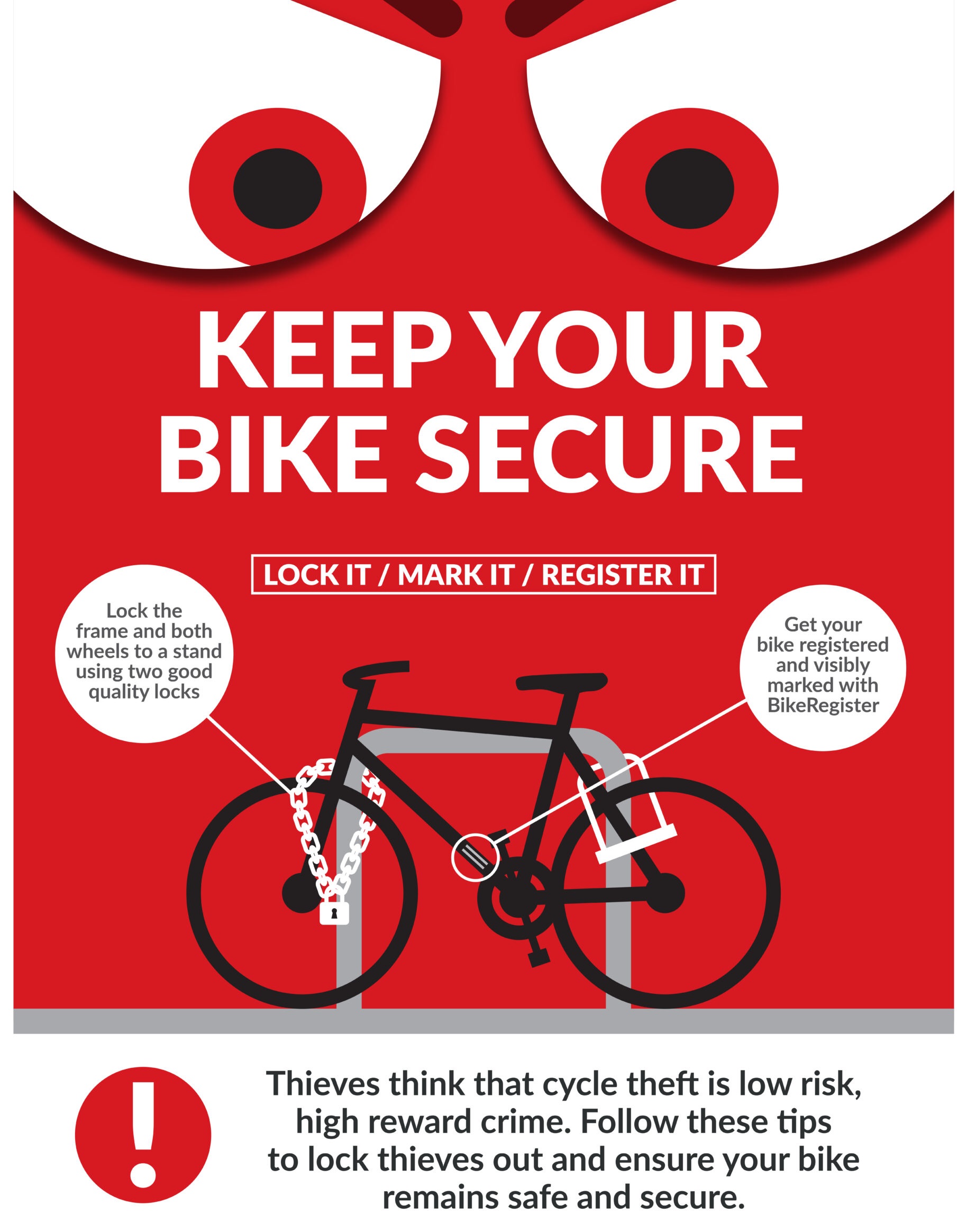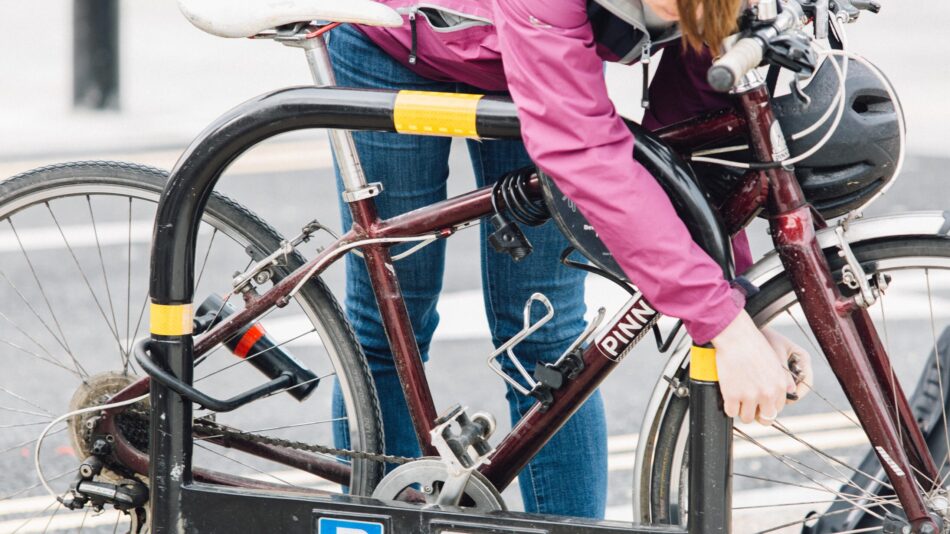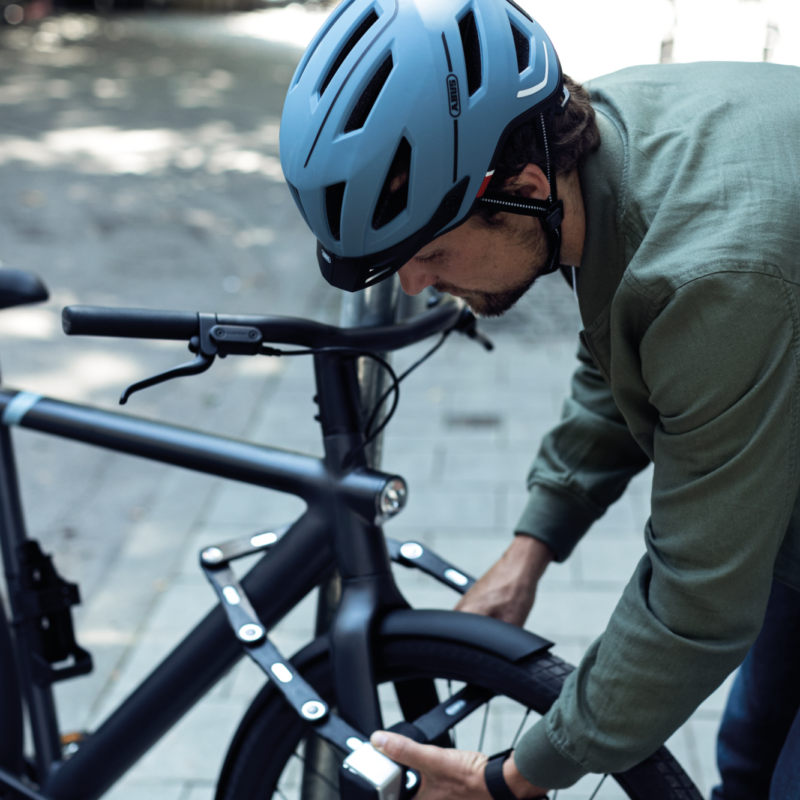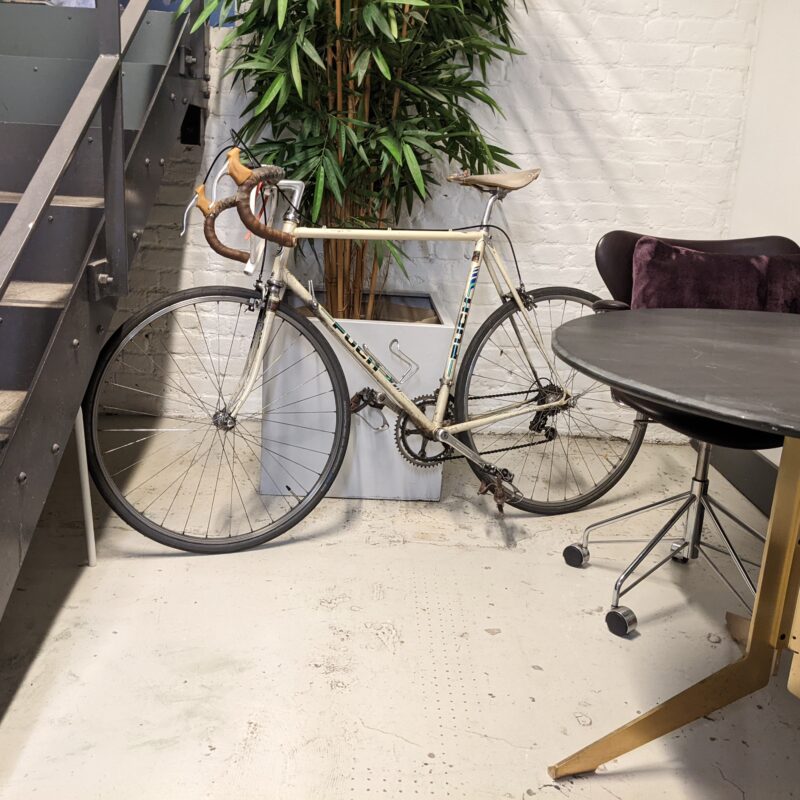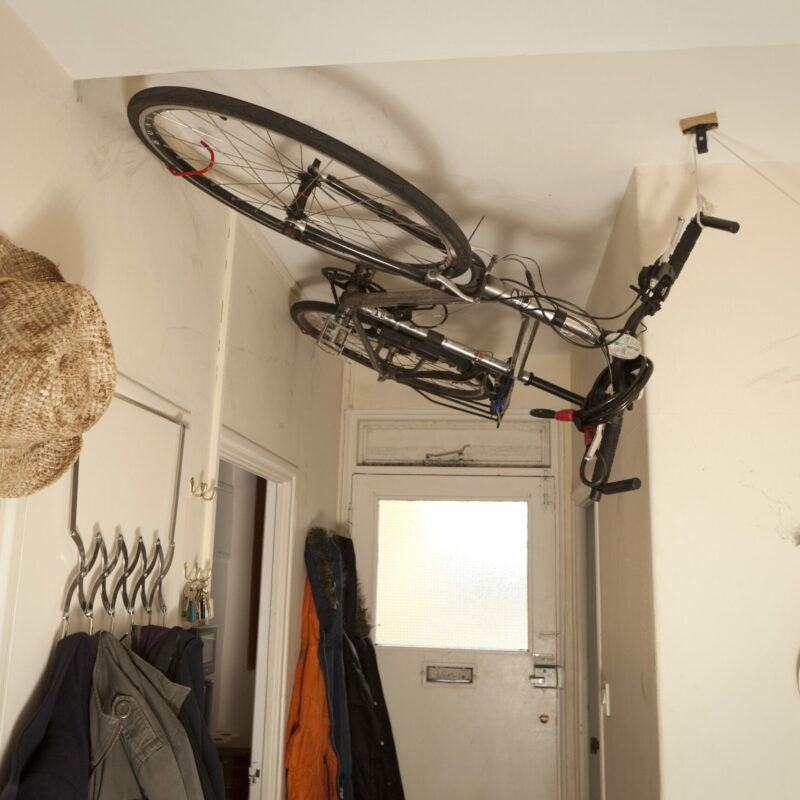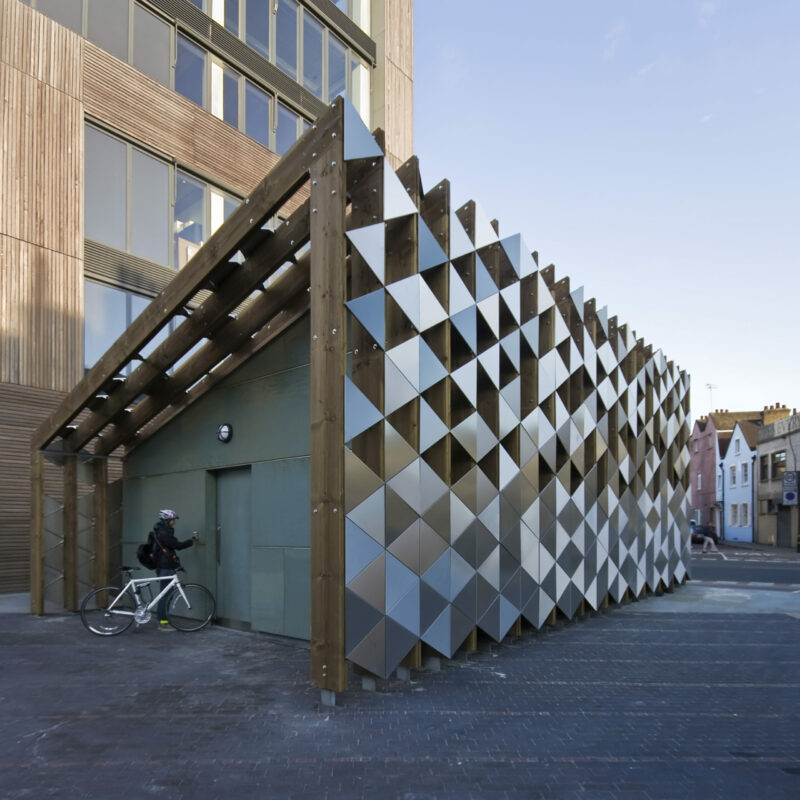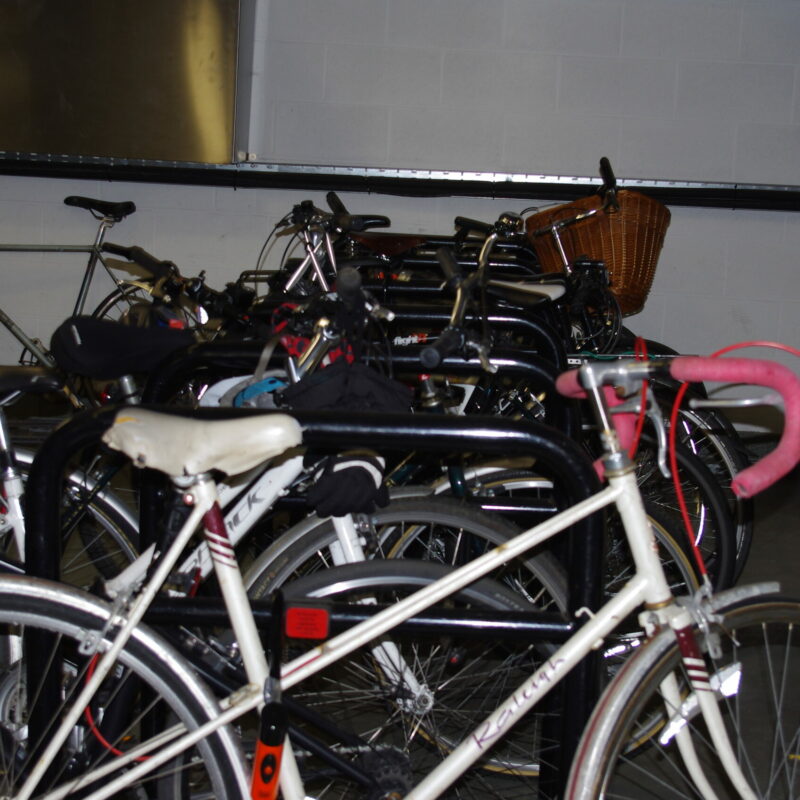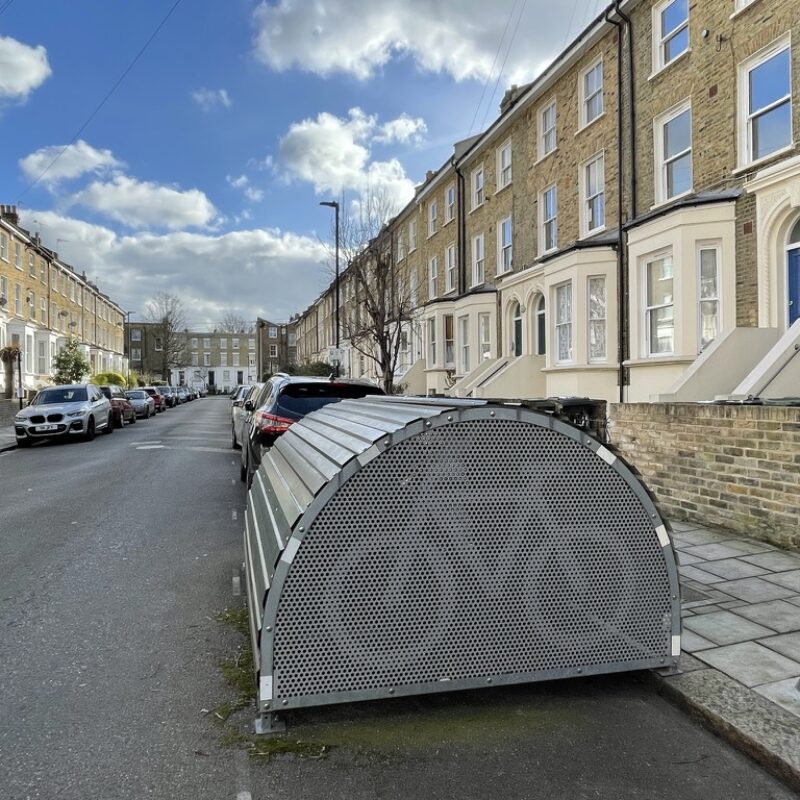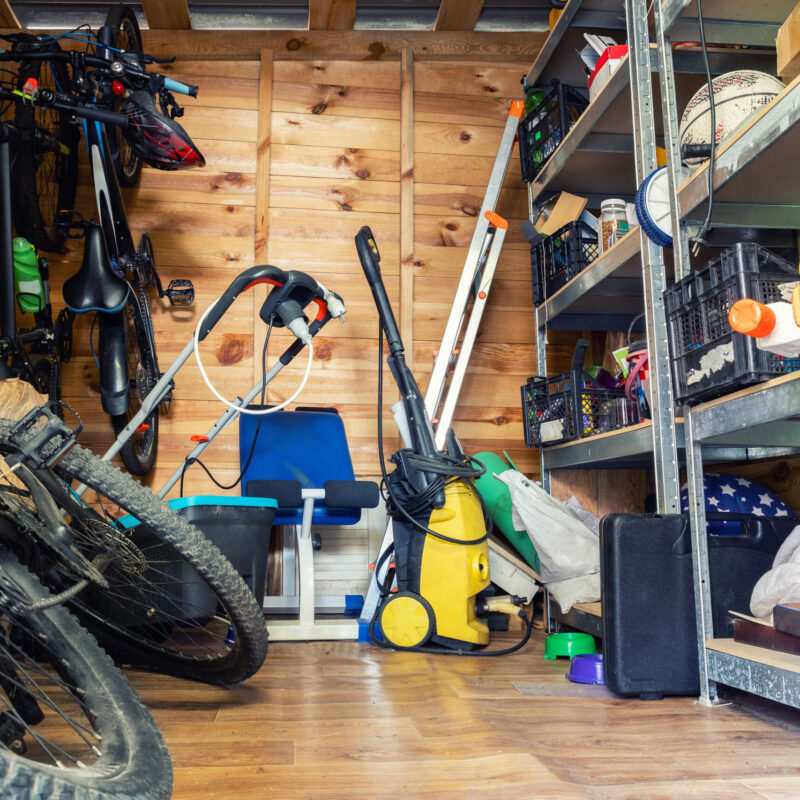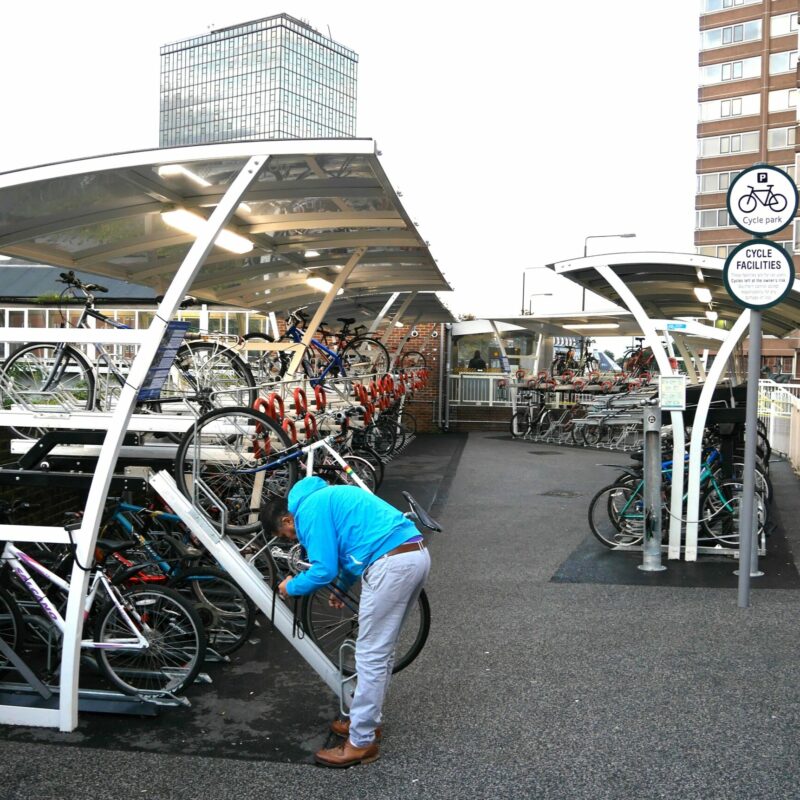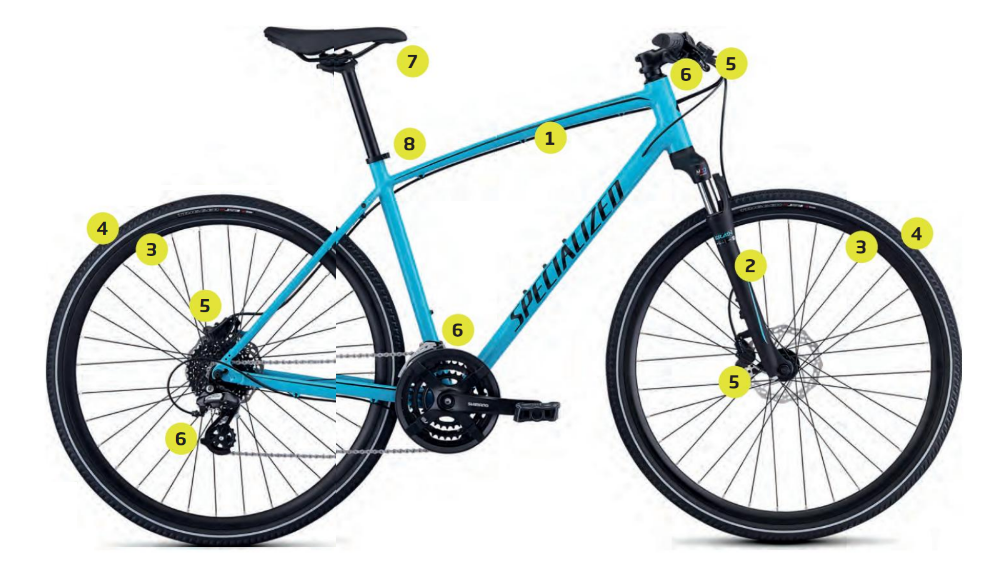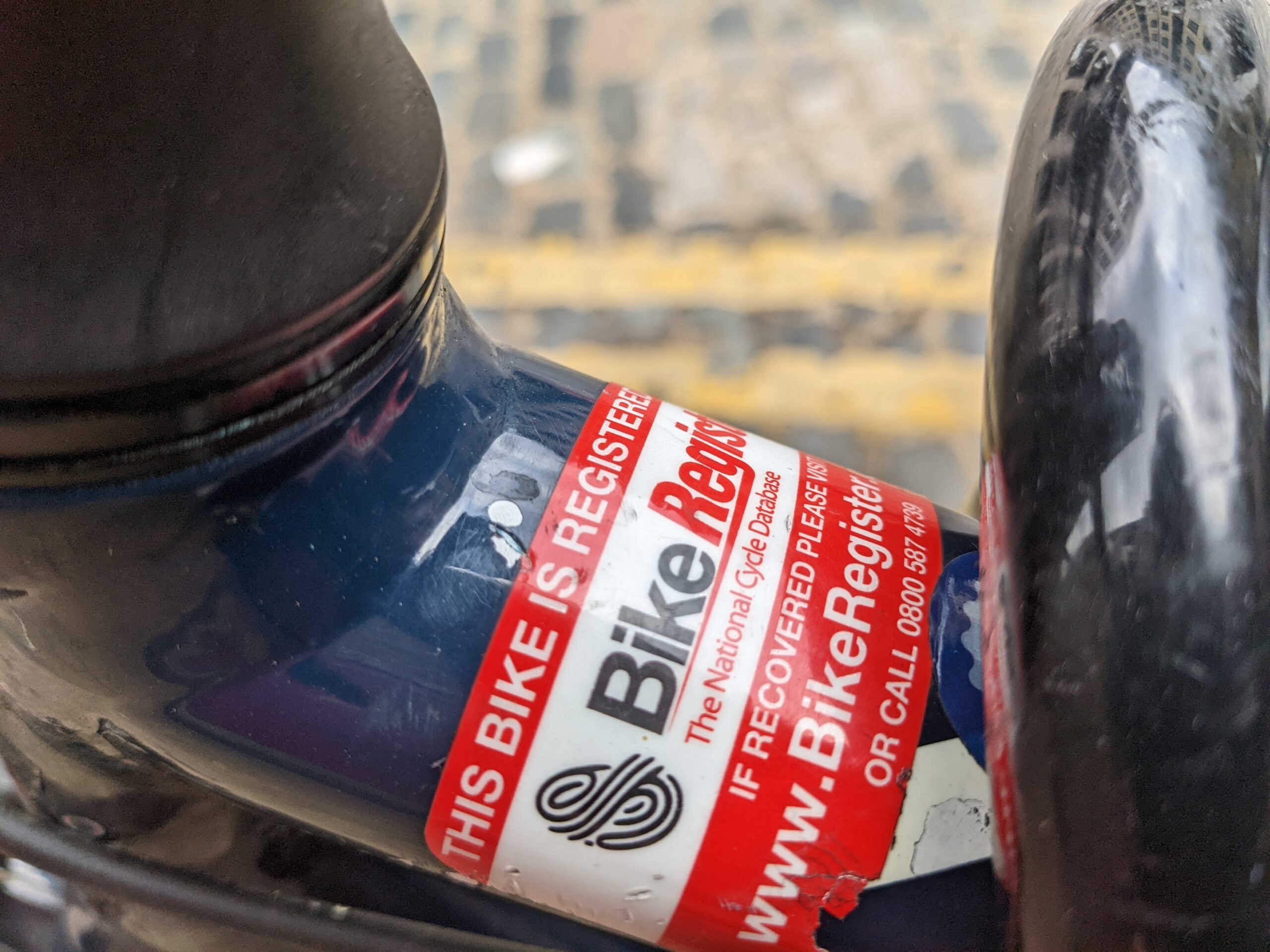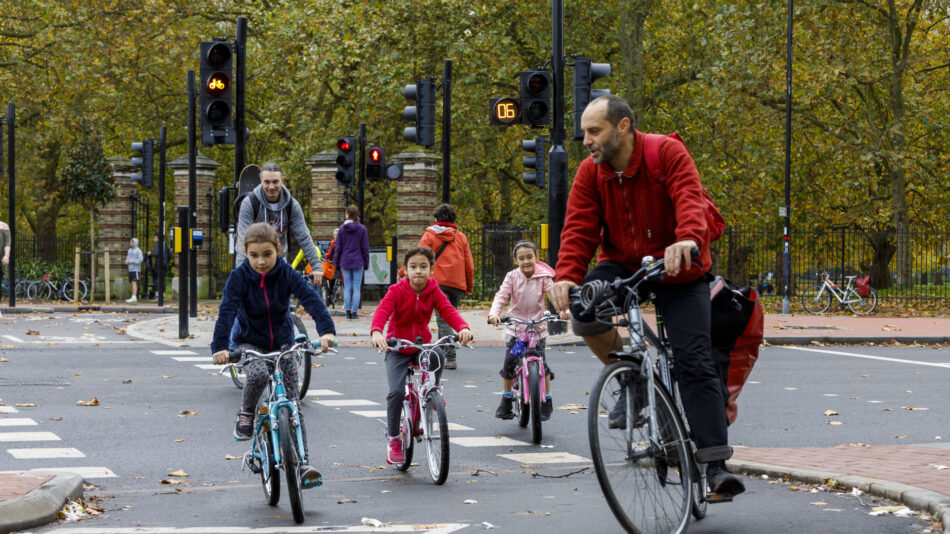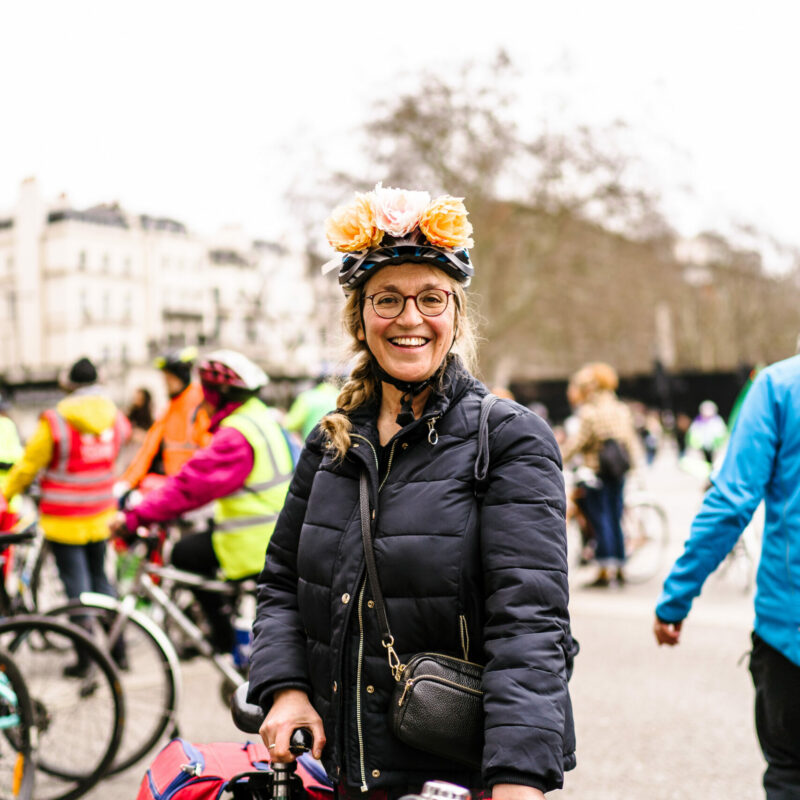3. BIKE MARKING
Know how to mark and ID your bike. This means that if it gets stolen and the police find it, they can return it to you. It’s not common sadly, but it does happen!
When you get a bike, take a photo of it and write down its make, model and frame number. Each bike has a number stamped somewhere on the frame (usually around 6. In the diagram below). These frame numbers are generally individual, but not all are unique.
For a unique bike ID, you can add a ‘bike marking’ – an etching or UV code that is individual to your bike. Bike marking kits cost about £20 or are sometimes provided for free by the police at local community events.
Then use the frame number and/or your unique bike marking to add your bike to BikeRegister, a free database used by police forces across the UK to identify lost or stolen bikes.
Kits include a Bike Register sticker to put on your bike and deter potential thieves, because it shows your bike will be harder to resell.
Some people use battery-powered GPS trackers inside their bikes that link to their phone, but these are expensive.
4. INSURANCE
No lock is perfect, so consider insurance.
You might already have theft insurance under another insurance policy, like household contents insurance. Check insurance conditions carefully: they might specify where/when you can lock your bike or require a specific type of lock.
LCC works with Yellow Jersey to provide cycle insurance for our members, including a renewals discount and a multi-bike discount – this focuses on theft and damage to your bicycle. (We also give all LCC members free third-party liability insurance.) Find out more about LCC membership benefits.
5. IF YOUR BIKE GETS STOLEN
Report your stolen bike to the police immediately in person, by phone or online – if you are looking to claim insurance, you will need the crime reference number.
Register your bike as stolen on BikeRegister.
You can sometimes find your own bike for sale second-hand online after it’s been stolen – distinctive markings on your bike can help identify it. There are sites that comb the web for suspicious second-hand bike sales and post them online e.g. Stolen Ride, Stolen Bikes UK and the London Fixed-Gear and Single-Speed ‘Stolen bikes’ thread. It is worth notifying the police if you identify your stolen bike online. If you are certain the bike is yours you can also report the seller to the site itself. Ideally, the police would track down the thieves with information you supply but this doesn’t often happen. (You can read our top tips for avoiding accidentally buying a stolen bike on our buying second-hand page).
When the police don’t act, people sometimes try and get their bike back themselves. This generally involves telling the police what you are going to do, going to see the bike for a ‘test ride’ and cycling away. We don’t support this approach: direct contact with thieves can easily become dangerous and you do so at your own risk.
